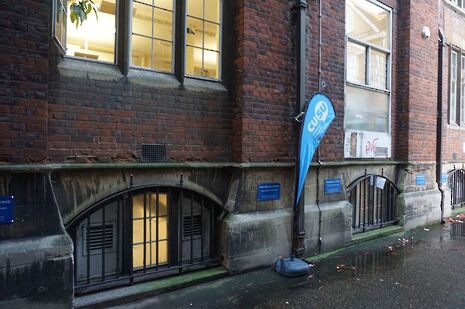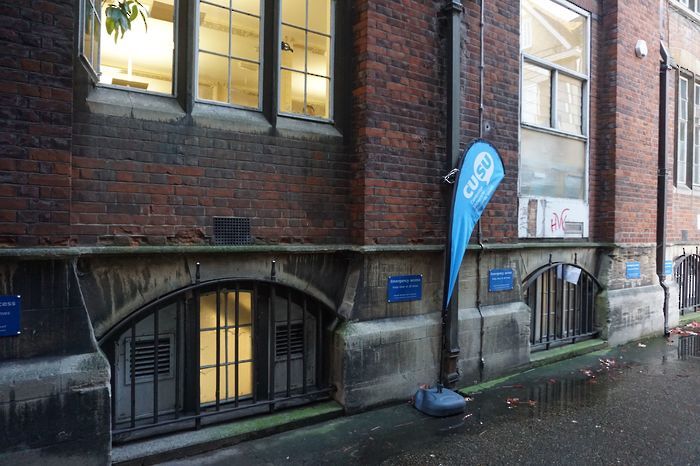CUSU and GU present plans for new joint students’ union
The current system is “failing postgrads”, CUSU President Evie Aspinall tonight told CUSU Council

Proposals for a single students’ union that would represent both undergraduate and postgraduate students at the University were tonight brought before the CUSU and Graduate Union (GU) Councils.
This comes after a GU consultation recently found that, despite being represented by both unions, postgraduate students feel vastly underrepresented by both CUSU and the GU.
The main aim of the new union is to improve the representation of postgraduates within Cambridge’s students’ unions. It also looks to provide greater clarity for students about where to get help and representation, and see a more efficient use of CUSU and GU resources.
CUSU and the GU will now begin a two-week consultation period. College representatives were tonight encouraged to share a consultation survey within their colleges, and CUSU and the GU will be holding drop-in sessions across the University over the coming fortnight to discuss the proposals with students, staff, and academic representatives.
Presenting the proposal to CUSU Council alongside GU President Sofia Ropek Hewson, CUSU President Evie Aspinall stressed that rather than looking to change CUSU and the GU, that the proposals seek to create an entirely new union.
In line with this, the draft proposals included changes to the current CUSU and GU executive teams. The new union’s executive would comprise two co-presidents and two access and academic affairs officers – the roles would be divided to ensure equal undergraduate and postgraduate representation. Additionally, alongside the Women’s and Disabled Students’ Officers, two roles already on CUSU’s executive team, would be a a Welfare and Communities officer, and a BME Officer.
CUSU’s current executive team comprises a President, Education Officer, Access & Funding Officer, Welfare and Rights Officer, Disabled Students’ Officer, and a Women’s Officer.
The proposal is still in its formative stages, and it was stressed by both Ropek Hewson and Aspinall that changes could still be made. “Everything is still on the table,” said Aspinall.
While one council member questioned the new Access and Academic Affairs roles for seemingly “combining” the current Access and Funding and Education Officer roles, which already manage large workloads, CUSU’s Sabbatical Officers responded that this was something that would need to be considered going forward.
Education Officer Matt Kite noted that “with access work having in recent years come to focus rightly on attainment” and other markers of access post-admission, the new role’s responsibility over both access and academic affairs is an appropriate move.
The changes to the executive team prompted debate among CUSU Council. A CUSU Part-Time Executive questioned why the proposal did not outline a full-time ethical affairs sabbatical role, while another student representative asked whether the possibility LGBT+ sabbatical role could be tabled. Aspinall responded that although the number of sabbatical officers was not up for debate due to financial reasons, as sabbatical officers hold salaried roles, the make-up of the executive team is still subject to change.
The next steps for the proposal will be determined according to the feedback received until Friday 24th May, during which time the focus will be on feedback from postgraduate and mature students.
Although postgraduate students are currently officially represented by both unions, a survey conducted by the GU found that only 30% of respondents said they understood how CUSU worked, and only 35% understood how the GU worked.
The current system, Aspinall remarked, is “failing postgrads”.
When the current system of separate undergraduate and postgraduate students’ unions at Cambridge was developed in the ‘60s and ‘70s, the number of postgraduates equalled only a fraction of the undergraduate community at the University. Yet this number has steadily increased, with postgraduates in 2016/17 making up 44.38% of the total student population, and is expected to rise further.
In terms of when this proposal could be carried out, Aspinall stated that it “will depend on the strength of the appetite for what’s been proposed” following the consultation period, and would likely be implemented in the next year or two.
Aspinall stated that any final proposal would likely to go to a referendum.
- Updated 14 May 2019: This article was updated to correct the claim that the new CUSU executive would include two Welfare and Communities Officers; the proposal outlines one such officer.
 News / Hundreds of Cambridge academics demand vote on fate of vet course20 February 2026
News / Hundreds of Cambridge academics demand vote on fate of vet course20 February 2026 News / University Council rescinds University Centre membership20 February 2026
News / University Council rescinds University Centre membership20 February 2026 News / Judge Business School advisor resigns over Epstein and Andrew links18 February 2026
News / Judge Business School advisor resigns over Epstein and Andrew links18 February 2026 News / Petition demands University reverse decision on vegan menu20 February 2026
News / Petition demands University reverse decision on vegan menu20 February 2026 News / Caius students fail to pass Pride flag proposal20 February 2026
News / Caius students fail to pass Pride flag proposal20 February 2026











